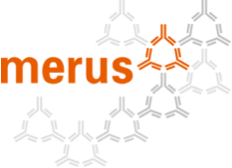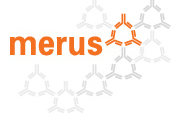Tag: oncology
Company News: Merus Announces the Full Validation of Its MeMo® Transgenic Mouse for Common Light Chain Human Antibodies

Merus B.V., a biopharmaceutical company focused on innovative human antibody therapeutics, announced today the full validation of its transgenic MeMo® mouse for common light chain human antibodies. The MeMo® mouse creates human antibody diversity using a large repertoire of human heavy chains paired with a common human light chain.
“Over the last year, we have immunized MeMo® mice with half a dozen antigens and analyzed the immune response,” said Mark Throsby, COO at Merus. “We are extremely excited by the performance of the MeMo® technology; serum antibody titers as well as size, diversity, functionality and developability of antibody panels are comparable to those of wild type mice.”
“In MeMo®, a single human light chain drives the generation of a normal B cell compartment as well as supports a robust immune response,” said Ton Logtenberg, CEO and founder of Merus. “The large and diverse panels of high-quality human antibodies that we retrieve from MeMo® show that this platform is comparable to the best-in-class transgenic platforms using diversified heavy and light chains.”
Because of the common light chain, MeMo®-derived antibodies can be immediately used to rapidly generate thousands of bispecific antibodies (Biclonics™) and combinations of antibodies (Oligoclonics®) for functional screening. Merus has shown that the quality and diversity of common light chain antibodies drives the success of identifying Biclonics™ with unprecedented potencies for application in oncology. The MeMo® mouse is available for licensing.


